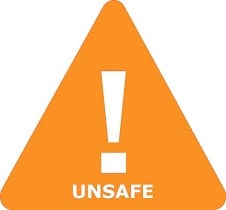Is Beverages, malt Safe in Breastfeeding
Question
I am a breastfeeding mother and i want to know if it is safe to use Beverages, malt? Is Beverages, malt safe for nursing mother and child? Does Beverages, malt extracts into breast milk? Does Beverages, malt has any long term or short term side effects on infants? Can Beverages, malt influence milk supply or can Beverages, malt decrease milk supply in lactating mothers?
Beverages, malt lactation summary

- DrLact safety Score for Beverages, malt is 5 out of 8 which is considered Unsafe as per our analyses.
- A safety Score of 5 indicates that usage of Beverages, malt may cause serious side effects in breastfed baby.
- Our study of different scientific research indicates that Beverages, malt may cause moderate to high side effects or may affect milk supply in lactating mother.
- Our suggestion is to use safer alternate options rather than using Beverages, malt .
- It is recommended to evaluate the advantage of not breastfeeding while using Beverages, malt Vs not using Beverages, malt And continue breastfeeding.
- While using Beverages, malt Its must to monitor child for possible reactions. It is also important to understand that side effects vary largely based on age of breastfed child and time of medication in addition to dosage.
- Score calculated using the DrLact safety Version 1.2 model, this score ranges from 0 to 8 and measures overall safety of drug in lactation. Scores are primarily calculated using publicly available case studies, research papers, other scientific journals and publically available data.
Answer by Dr. Ru: About Beverages, malt usage in lactation
While breastfeeding it is recommended to avoid use of alcohol or do it occasionally and moderately (ABM 2015). Drinking Beverages, malt does not increase milk production (Mennella 1993-2001, Comité Lm AEP 2012). Long term consumption may cause: sedation, failure to thrive, psychomotor delay in the infant (Little 1989, Moretti 2000, Koren 2002, Backstrand 2004, Sachs 2013), although the data are inconsistent (Little 2002, Haastrup 2014, ABM 2015). One case of Pseudo-Cushing Syndrome was reported that disappeared after alcohol stop by the mother (Moretti 2000). It is controversial that alcohol consumption is associated with shorter duration of breastfeeding (Giglia 2008, Rebhan 2009, Mgongo 2013). Despite of low increase of Prolactin serum level (Sarkola 1999), acute consumption affects the infant with sedation, and, inhibits Oxytocin secretion in the mother (Cobo 1973, Coiro 1992, Chien 2009) and hence affects the ejection reflex of breast milk with a decrease of 10% to 25% of milk production (Mennella 1991-1993-1997-1998-2001-2005). Excessive acute ingestion by the mother may induce coma, seizures and danger of death in the infant (Swiderski 2011). Both Beverages, malt 0.0% and non-alcoholic (<1%) may be drunk by the nursing mother (Koletzko 2000, Schneider 2013). Increase of anti-oxidant properties of the milk have been recognized (Codoñer 2013). Elapsing time required to resume breastfeeding after occasional consumption of alcohol by the mother in order to ensure disappearance of milk and blood (Ho 2001) depends on mother's body weight (lesser weight needs longer time to wait), and, on the amount ingested (higher amount needs longer time). Stop breastfeeding for longer than two and a half hour for every 10 - 12 g of ingested alcohol: 330 mL of 4.5% Beverages, malt, 120 mL (1 glass) of 12% wine, or, one cup of 40% - 50% liquor. Suggested time-periods to stop breastfeeding for a 60 kg of body weight woman are: 1 glass of wine = 2.5 hours; 660 mL of Beverages, malt = 5 hours; 3 cups of liquor = 7.5 hours (ABM 2015: See reference values at Can Fam Physician 2002) Some medicinal products containing high concentrations of alcohol as an excipient should be avoided during breastfeeding (Nice 2000). Avoiding bed-sharing is recommended to mothers who have drunk alcohol (UNICEF 2006, ABM 2008, Landa 2012, UNICEF 2013). When topically used as disinfectant, alcohol is compatible with breastfeeding (WHO 2002).
